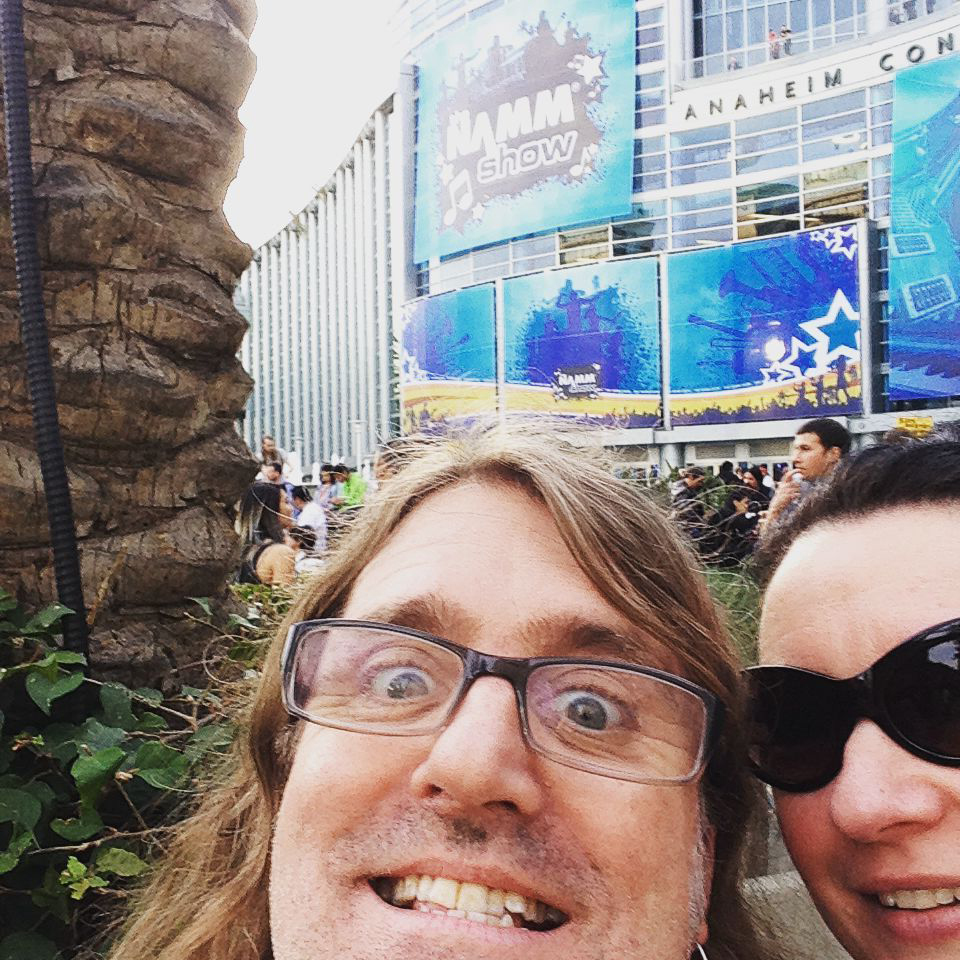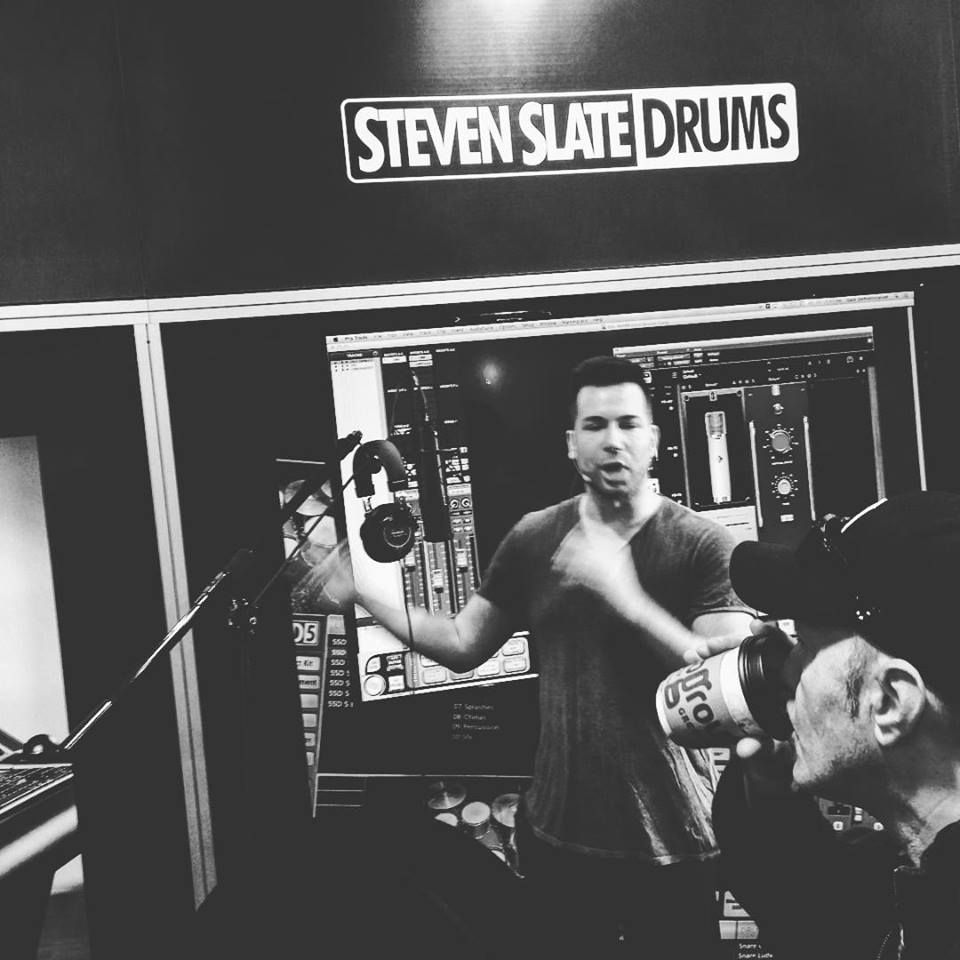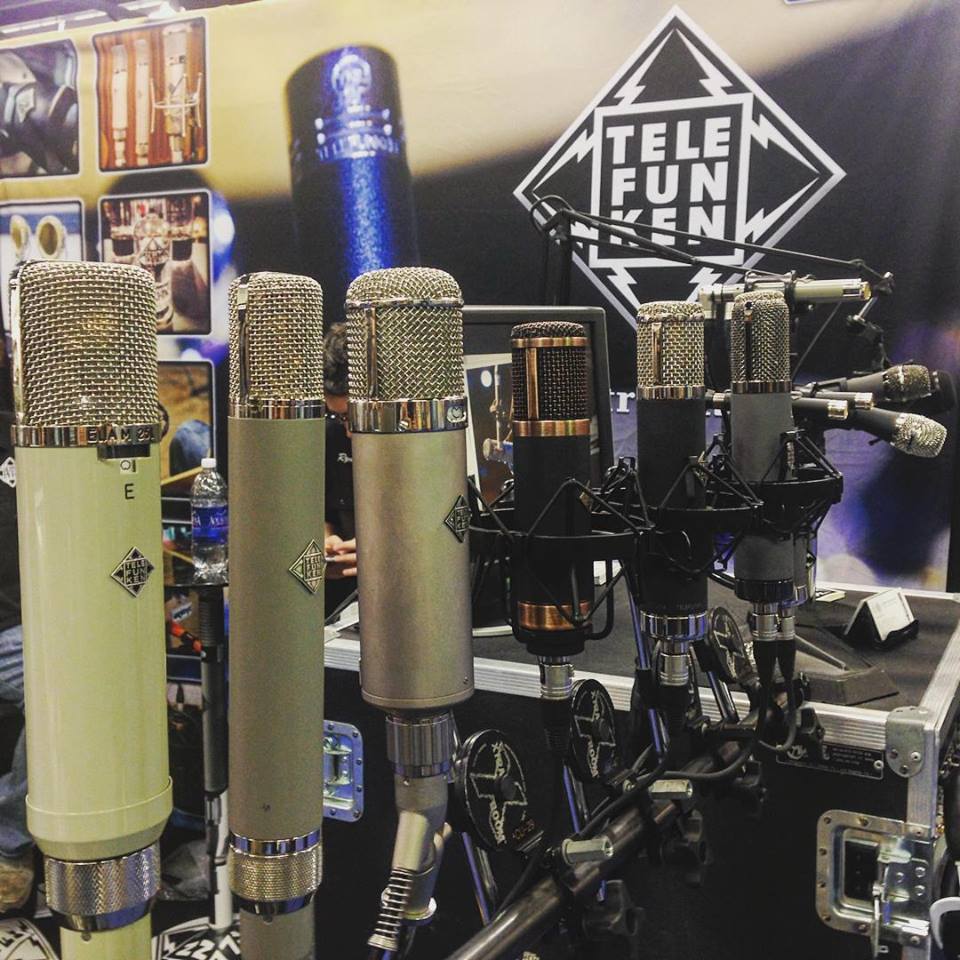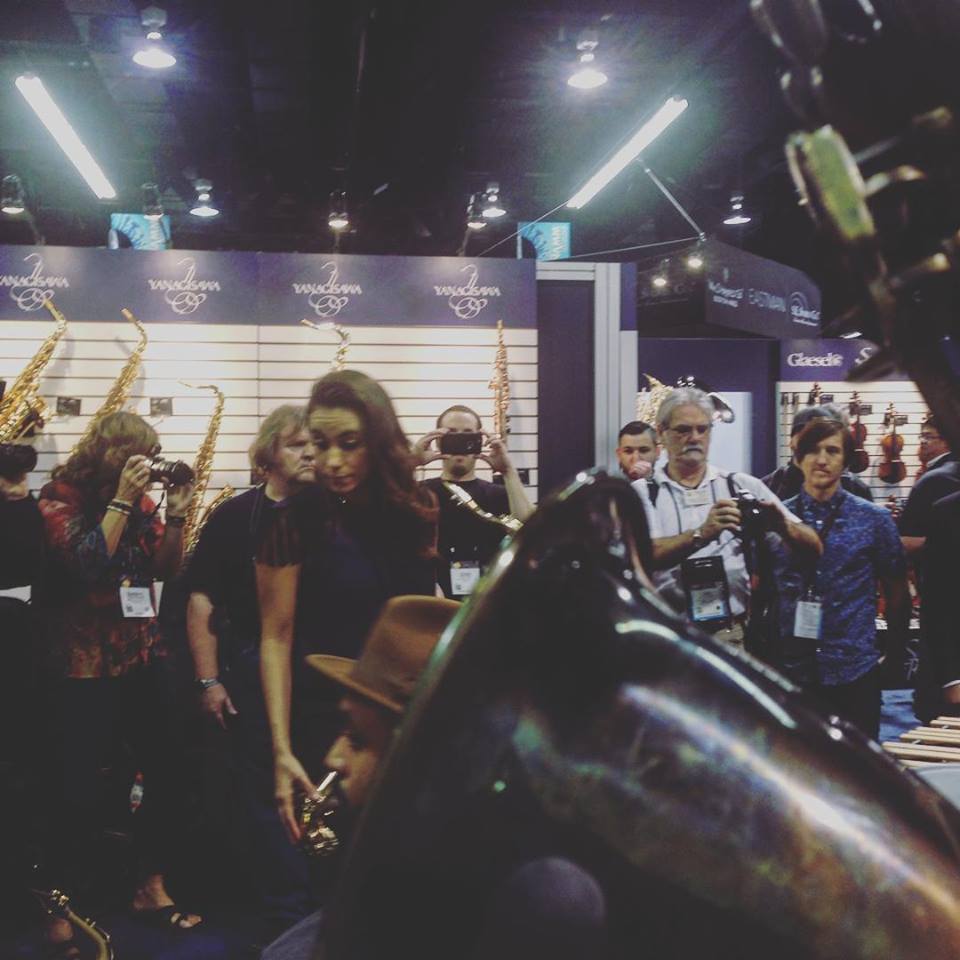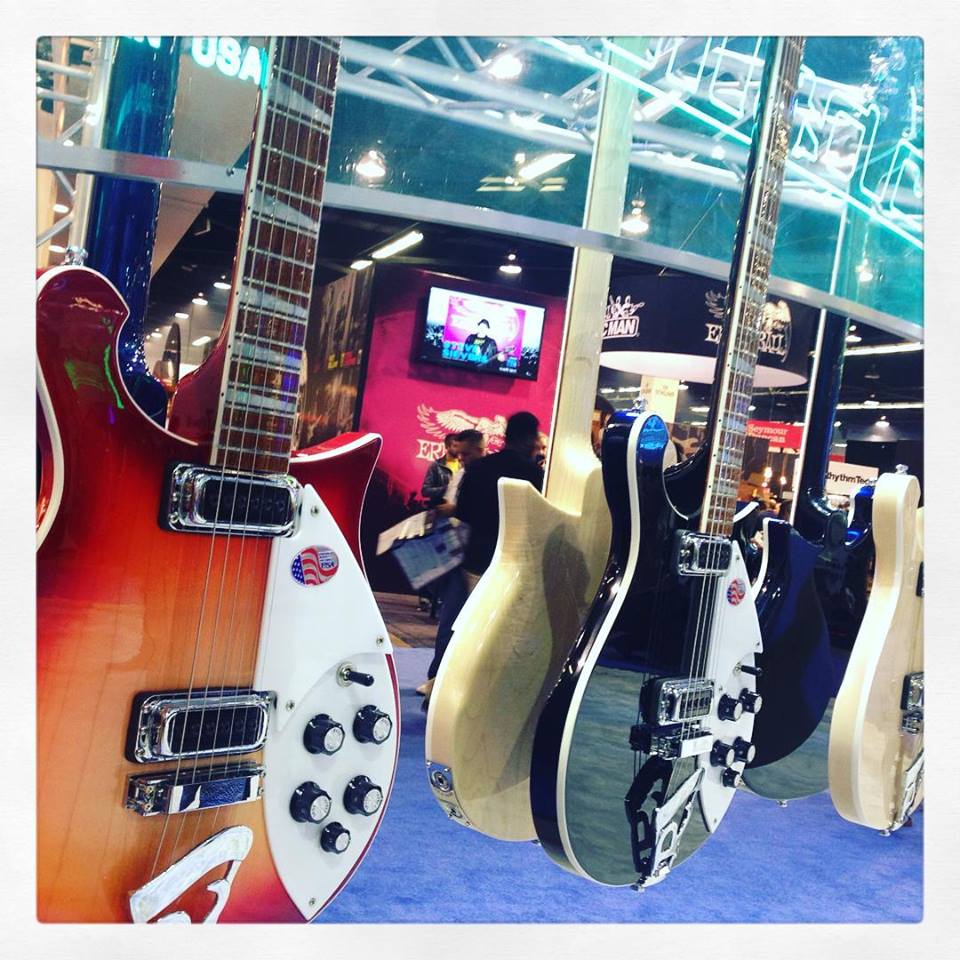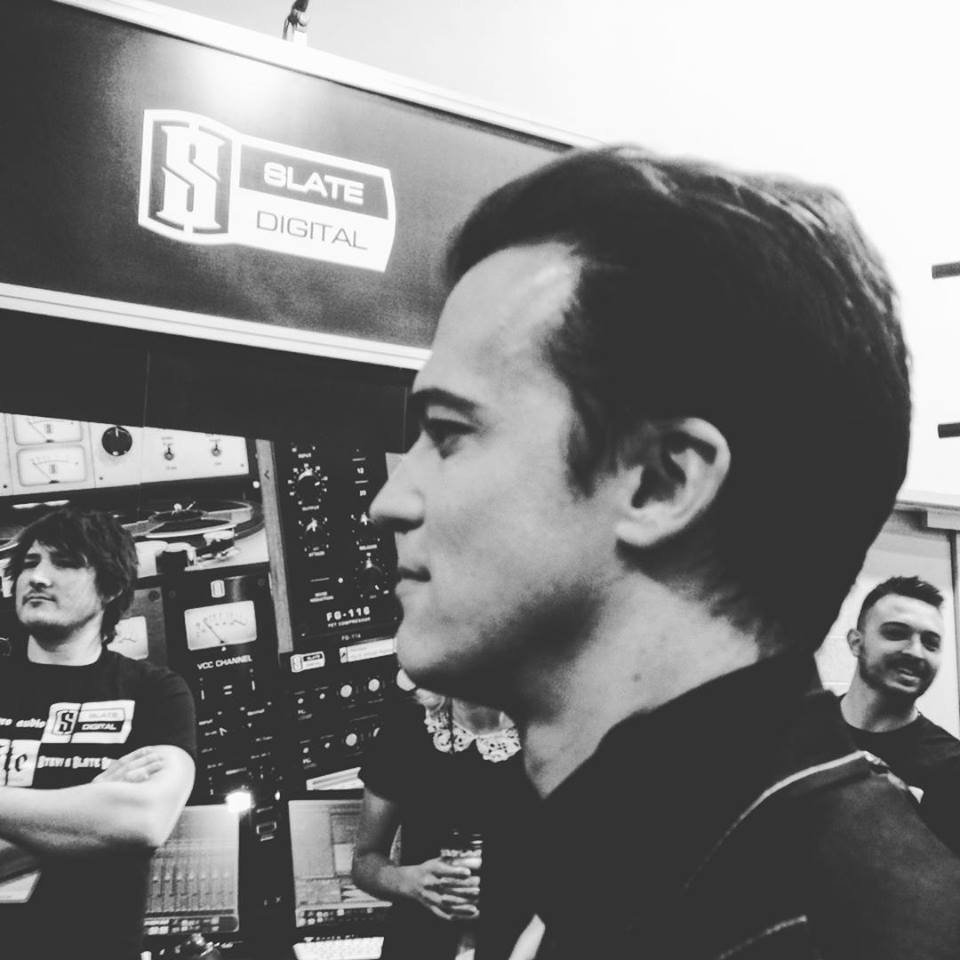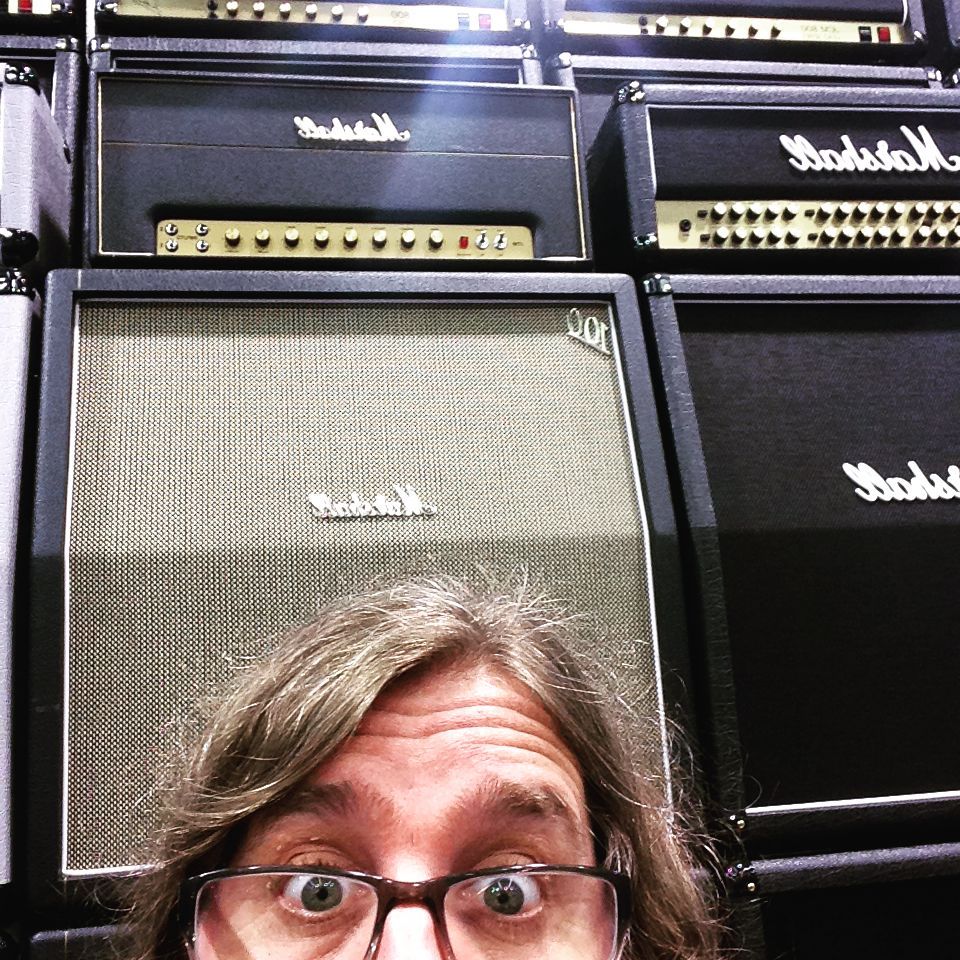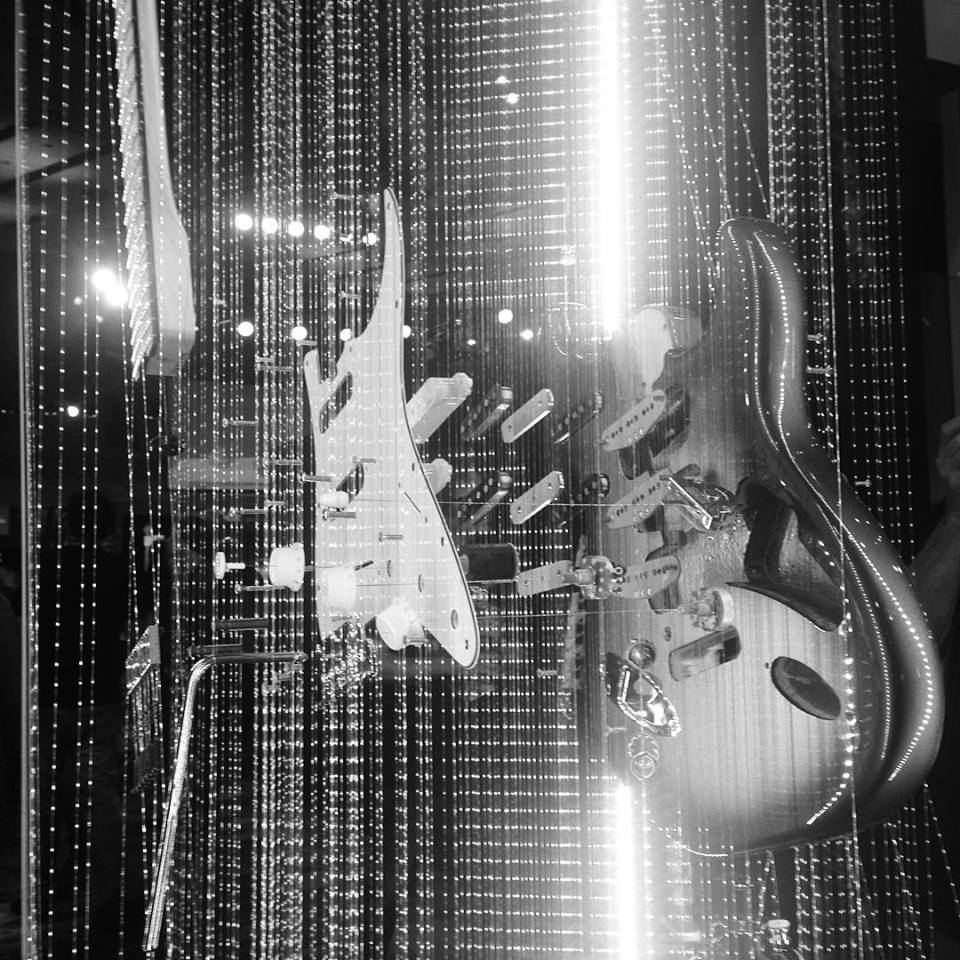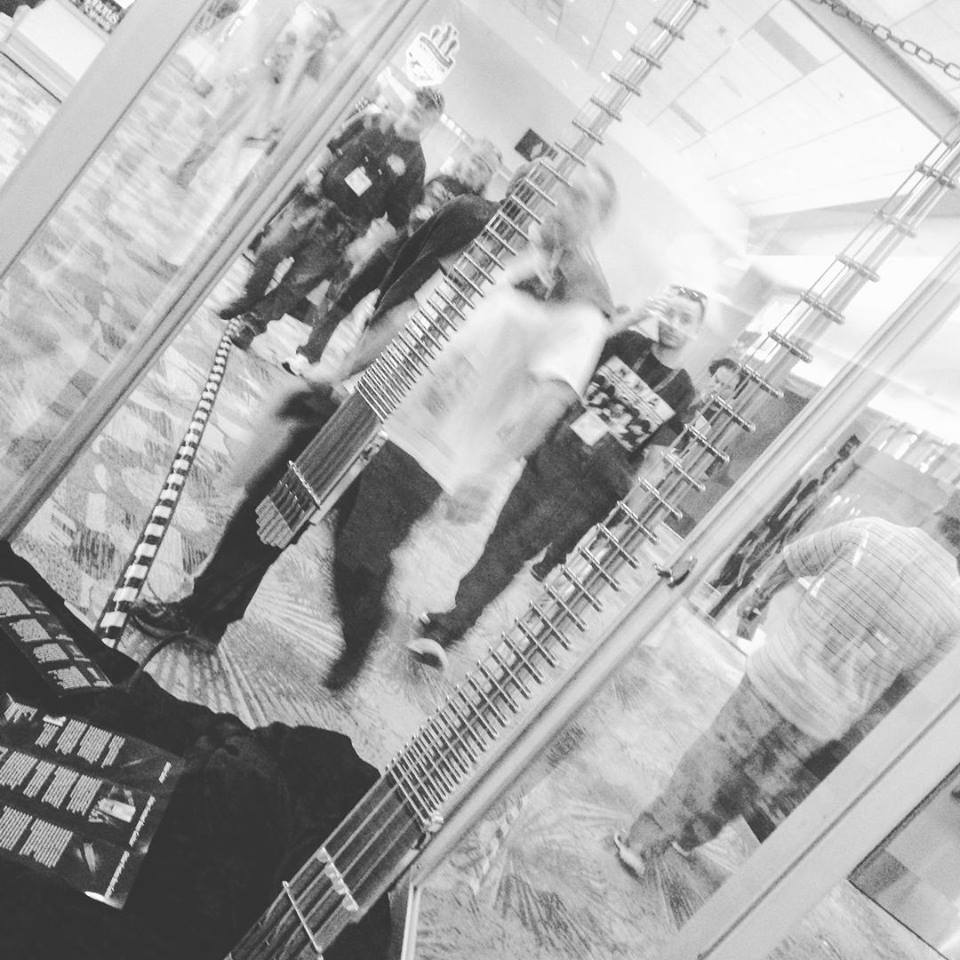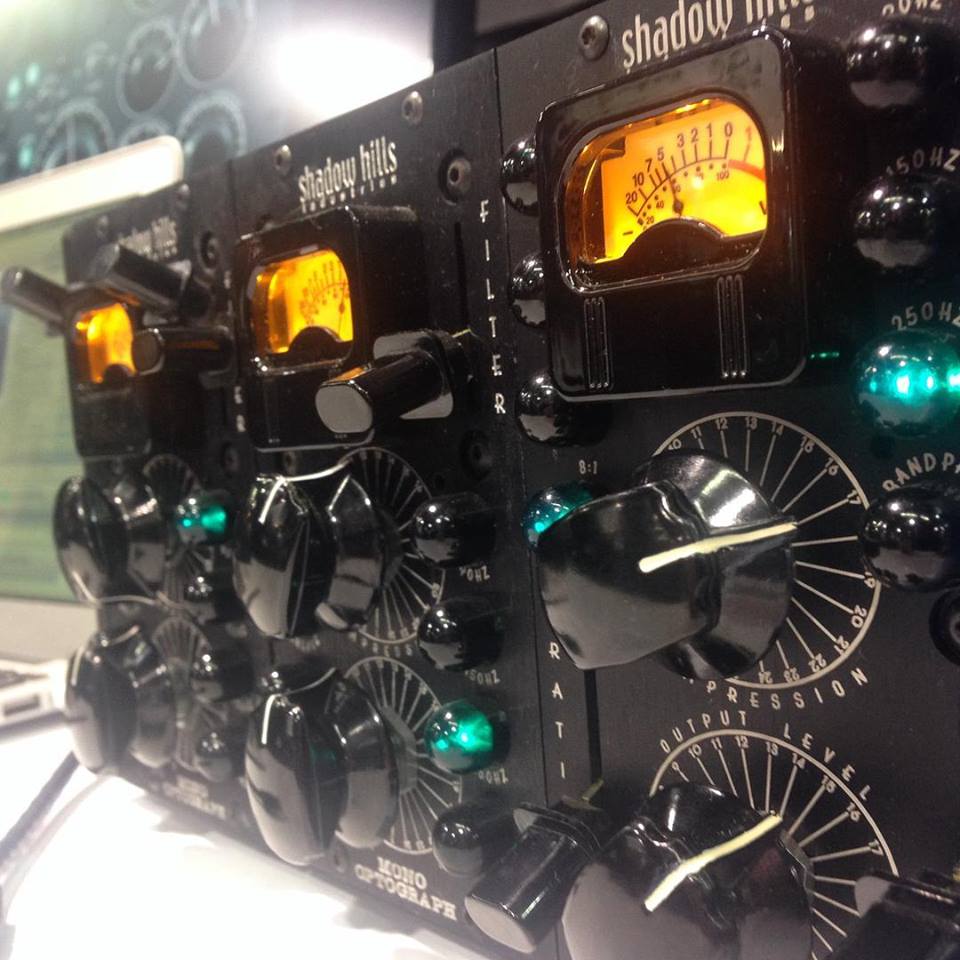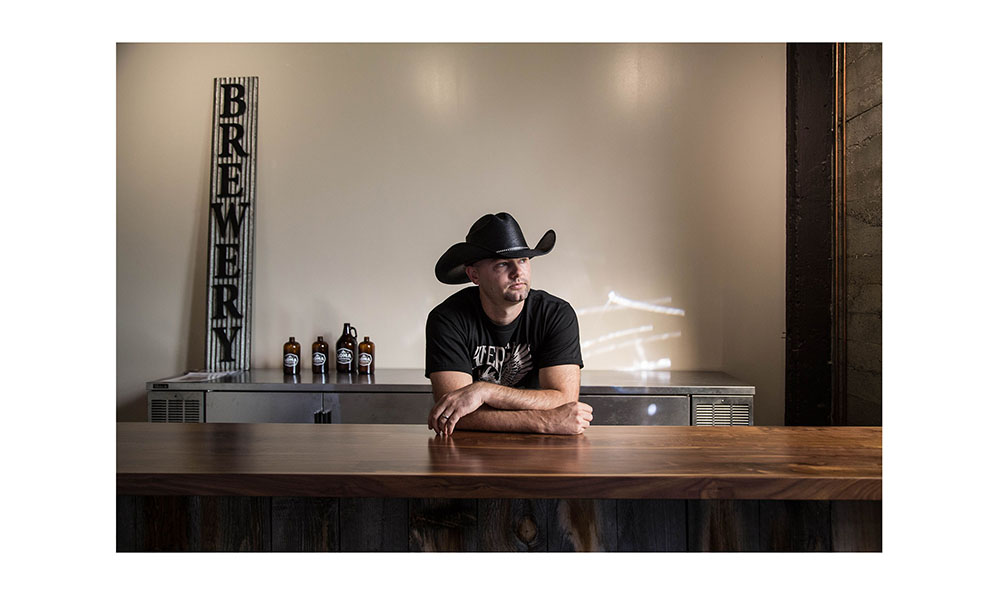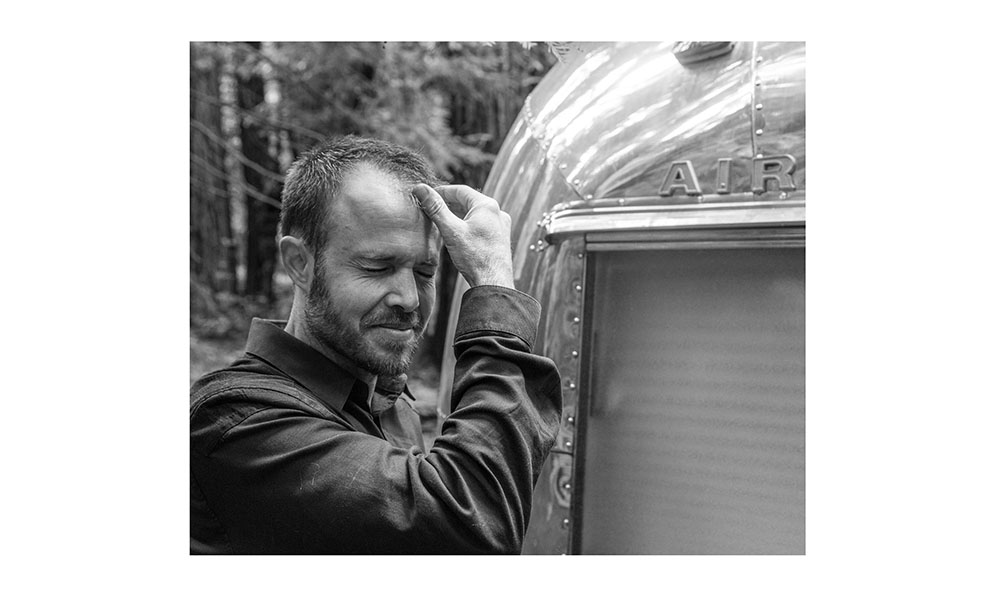NAMM Music & Recording Gear mega conference.
The NAMM conference in Anaheim CA is the largest music and recording gear event in the world. Thousands attend from musicians, recording people like producers, engineers and musicians to teachers of music.
Although I’ve been heavily involved in the music industry for decades, I’ve somehow managed to never attend the NAMM show in Anaheim—until this year. It’s all quite overwhelming to a ‘NAMM virgin’, and it took most of the first day to adjust to being around 100,000 other music industry folks all dying to see the latest gear, attend lectures by industry leaders, hear music, and, of course, join other hopefuls in spotting rock stars.
Once I got a general feel for the layout of the show and a general idea how it was organized, I settled in a bit and was able to lose myself in the staggering amount of gear and products that are out there–instruments from the large makers down to the quirkiest boutique makers, software, DJ gear, accessories, and some of the best people watching you can imagine. It is a cacophony of sound and a visual assault that would cause an agoraphobic spontaneously combust.
I did my share of drooling both in the pro audio section and on many really cool instruments, but for me, the lectures were the most thought provoking and insightful part of the event. It was the panels that gave me the most food for thought about where this rapidly changing industry might actually be heading, and how I as a business owner within this industry might navigate these unsettled waters for a successful future.
The Global Impact of Disruptive Music Technology
One panel that was particularly interesting to me and got my juices flowing in both good and bad ways was called ‘The Global Impact of Disruptive Music Technology’. With panelists Jack Joseph Puig (multi-platinum producer), Marcus Ryle (founder/president of Line 6), Steve Slate (Slate Digital), Dr. Jeffery Smith (founder/ceo Smule), and Ernst Nathorst-Boos (ceo Propellorhead), the discussion focused on technologies that disrupt and challenge traditional practices in recording and making music.
Here at Basement 3 Productions, advancements in virtual instruments (particularly drums and strings in my case) have really been helpful in allowing me to make top notch recordings for singer songwriters at a price that an independent musician can handle. Though even with the minimal use of virtual instruments here at B3P, one downside is that I’ve replaced the need to hire out work to fellow musicians in some instances, but I can pass on savings to clients. With just this small example, one can see potential dilemmas, like we have certainly seen as well with the rise of digital media (mp3, AAC, etc) replacing physical media (CDs, tapes, records) and it’s impact on music sales/profits. Dr. Jeffery Smith’s company, Smule, is particularly in the front lines of the democratization of music–providing the ability to make music to the masses. This democratization is where the conflict begins to arise for me–where the obvious advantages of technology start to do battle with the cheapening of music as an art and a discipline. The other panelists companies fall more in the zone of helping musicians/engineers to get top quality sounds that would only have been achievable in big studios in past years. Obviously, the latter type of technology is in line with what I find useful and good—it has helped me create my whole business model—but on the other hand, the downside has been for big studios who have gone out of business, disrupting the livelihoods of many.
“…as a society, there is less and less knowledge about music, but way ability for the masses to create it…”
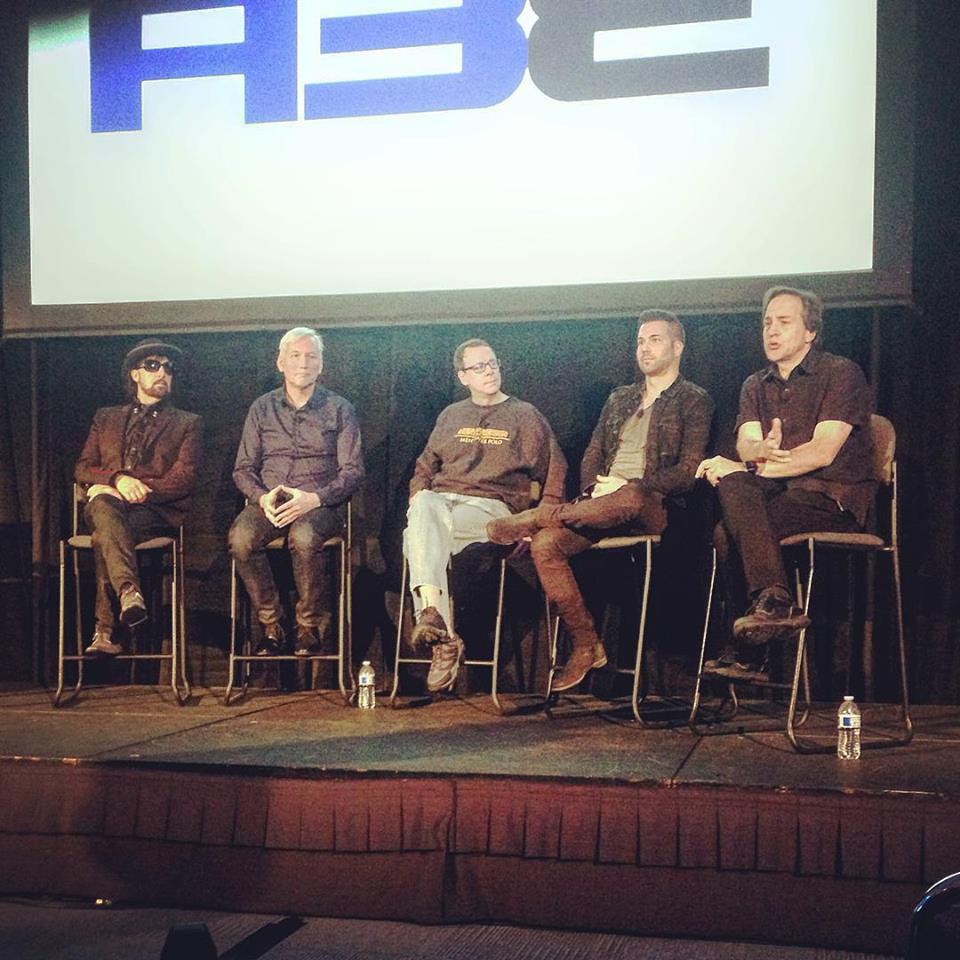
AVID
With technology on an a seemingly endless rise, are we going to see perpetual instability in the music industry? As an avid user (and AVID user) of technology, it is perhaps hypocritical of me when I start to suggest that technology is also in part severely damaging the music industry–but that dark part of the technology boom definitely exists too. One thing that came up that really hit me between the eyes was when it was pointed out that as a society, there is less and less knowledge about music, but way ability for the masses to create it. One panelist mentioned that Charles Ives had suggested that people would become way more knowledgeable of music in the future, but the complete opposite has happened. Yet there are an ever increasing amount of mobile apps, like Smule, go here to read more: SMULE APPS SOCIAL MUSIC NETWORK JESSIE J that will allow users to ‘make music’ and put it out for the world to hear. And this is where I struggle with the internal voices that on one hand say ‘right on’ and on the others that are screaming ‘get off my lawn’. Part of me really feels that apps like this feed the annoying ‘entitled’ stance that is way too prevalent in all aspects of life these days. I feel like music is something one needs to work for, and with the experience and work ‘removed’, the whole joy of achievement and the joy of the process are also removed. For me, being human is all about a lifetime of mistakes and successes that lead to further growth–that is what is unique to being human and the very essence and definition of being human. If we allow technology to replace all this experience, then what happens to joy and accomplishment? I can say that as much as I utilize new technology, I don’t enjoy the process of making music quite as much–there is really something rewarding in the process and the time and struggle it takes to achieve one’s goal. The same has been true in photography too–even more so, I think, as everyone has a ‘camera’ these days and thinks they are a ‘photographer’.
“Part of me really feels that apps like this feed the annoying ‘entitled’ stance that is way too prevalent in all aspects of life these days.”
On the other hand, does it matter how one achieves and end result? If someone creates a brilliant song using apps to piece together elements in a creative way, isn’t that good enough? Maybe just the way in which creativity is manifested will change with the tools, but if the end result reaches and touches people, maybe that’s all that matters.
Technology
I have no definitive answers, but I do certainly have feelings and opinions. For someone who values music above all–from the creative process, to the execution, to the sound of the recording, I feel that technology might have done a little more damage than the good it’s also brought to the table. Technology brought us the mp3, which degrades the sound and impact of music. Earbuds and computer speakers are the new norm for listening. Autotune has often replaced talent. Elastic Audio and Beat Detective fix bad timing. Though I still think there is lots of great music being made, there is a major proliferation of crap to dig through to get to it caused by the ability to make it so easily. But new technology has made my business possible too, and has helped me to achieve some of the best production of my life. We can find new music in an instant, and listen to it anywhere. I suppose it actually sounds better as an mp3 on earbuds than it did coming off cassettes on my crappy Sony boom box. So back and forth we go.
I still feel that humans, despite all their flaws and imperfections, emote feeling in a way that machines don’t or can’t. The beauty of all art to me is it’s expression of humanity (the humanities…) –the struggle for perfection that may be the only purpose of each our existences. For me, I suppose it will be a balance that just ends up ‘feeling’ right. As Jack Joseph Puig noted at the end of the panel, one will always find what they are passionate about and will take what that need to achieve their goal. For me, at those times when I feel that the distraction of trying to keep up with the latest technology is getting in the way of making music, I need to remember that all the decades of studying and loving music result in the best tools anyone could have, and no technology is a replacement for that kind of experience, technically or emotionally.
